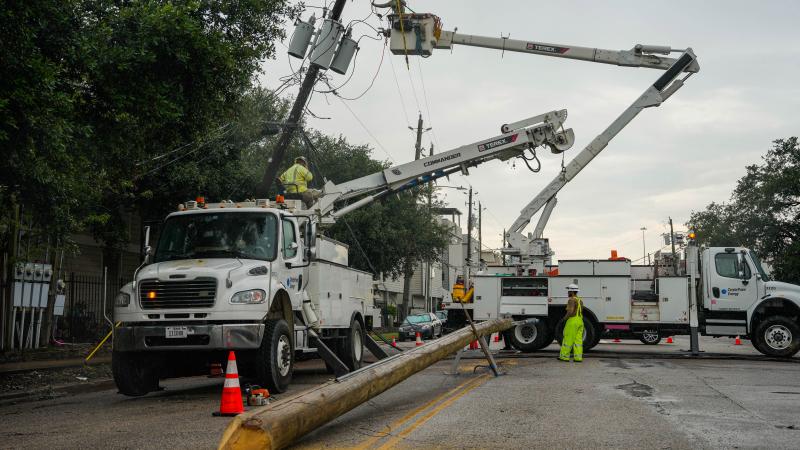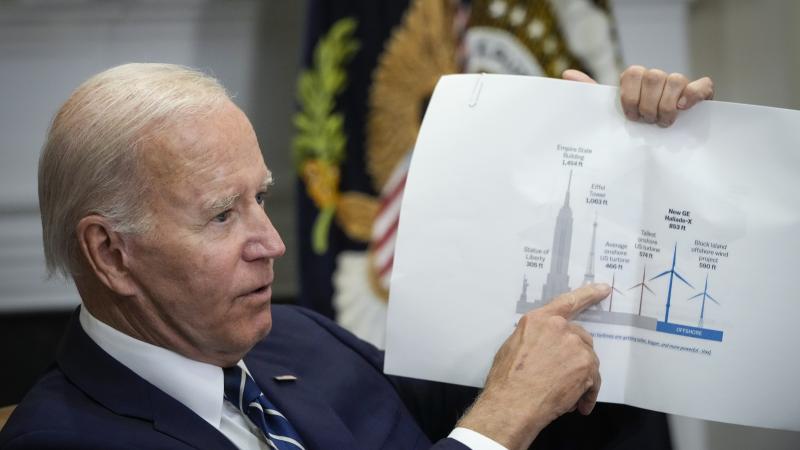After backpedaling on gas stove ban, administration plans to raise costs via new efficiency regs
Energy Department this week proposed new efficiency standards for consumer cooking appliances, claiming they would save a "significant amount" of energy. Gas industry advocate discounts claim, alleges ulterior motive.
Soon after softening its public stance on banning gas stoves in response to backlash, the Biden administration is already planning to impose new costs on the appliances with stricter efficiency standards that have drawn a stinging rebuke form the natural gas industry.
The Department of Energy's Office of Energy Efficiency and Renewable Energy this week proposed new efficiency standards for consumer cooking appliances, claiming they would save a "significant amount" of energy.
U.S. Oil and Gas Association President Tim Stewart is discounting the regulators' claim — and accusing them of concealing an ulterior motive.
"The potential environmental benefits will be very small because the potential energy efficiency improvements are very small," Stewart said in a statement to Just the News.
The latest move against gast stoves "isn't about efficiency," he asserted, "it is about ending the use of fossil fuel."
Last month, the Biden administration was forced to backpedal after an official hinted at a possible nationwide ban on gas stoves, claiming the appliances are linked to climate change, pollution and health problems such as cancer.
The White House clarified that it is not in favor of banning gas stoves, after Consumer Product Safety Commissioner Richard Trumka Jr. told Bloomberg the appliances are a "hidden hazard" and that "any option is on the table" with regard to regulating them.
Roughly 38% of U.S. households have gas stoves.
In a bid to allay public concerns, the Energy Department is emphasizing the time lag before the proposed new efficiency standards would take effect.
"As required by Congress, the Department of Energy is proposing efficiency standards for gas and electric cooktops," a department spokesperson told Fox Business. "We are not proposing bans on either.
"The proposed standards would not go into effect until 2027 and cumulatively save the nation up to $1.7 billion. Every major manufacturer has products that meet or exceed the requirements proposed today."
The department claims the new standards would strongly benefit both the climate and consumers. The standards "would save a significant amount of energy and a lifetime energy savings for consumer conventional cooking products purchased," according to the proposed rule.
Fox Business reported that regulators estimated the new standards would raise upfront costs of gas stove products by $32.5 million per year while saving $100.8 million annually with lower operating costs factored in.
For Stewart, the claims of net savings are deja vu all over again.
"New government standards almost always increase the up-front cost for the manufacturer and just as often will reduce the actual utility of the new appliance," he said. "These costs are passed on to the consumer.
"On the other hand, if manufacturers determine there is a market for more fuel-efficient natural gas stoves, they will more than likely compete to produce those stoves without new regulations."
Any potential efficiency increases promised by the regulators are far outweighed by steep new compliance costs, according to Stewart's calculations.
"The Department of Energy has looked at the energy efficiency before and decided that the juice wasn't worth the squeeze," he said. "In other words, it's difficult to cost-effectively increase the energy efficiency of stoves. It is estimated that they at best will achieve a 3% increase in efficiency for an astronomical cost."
At the end of the day, Stewart argued, the stricter standards are a ploy to price gas appliances into obsolescence as part of the administration's larger war on traditional, cheap energy sources.
"The Biden Administration is doing everything it can to make natural gas and natural gas appliances more expensive to force consumers to fuel-switch," said the industry advocate. "Across the administration they are working against the use of natural gas, even though right now natural gas is incredibly inexpensive."
Florida GOP Gov. Ron DeSantis pushed back against any government regulation of gas stoves by proposing a permanent tax holiday on them.
DeSantis' 2023 state budget ("Framework for Freedom Budget") proposed four permanent sales tax holidays covering baby necessities, cribs and strollers, over-the-counter pet medications and gas stoves.
"They want your gas stove, and we're not going to let that happen," he said at the state Capitol.














